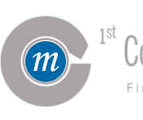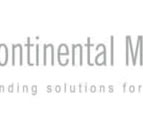 |
 |
 |
 |
mortgage loan programs available in: Alabama, Alaska, California, Colorado, Florida, Montana, Indiana, Louisiana, Maryland, Minnesota, Mississippi, Missouri, New Mexico, North Carolina, North Dakota, Pennsylvania, South Carolina, South Dakota, Tennessee and Texas |
||
 |
FHA home loans: | FHA home buyer | streamline refinance | mobile home loans | reverse mortgage |  |
 |
 |
 |
 |
 |
 |
|
 |
mortgage loans: | home purchase | Mortgage Refinance | home equity loans | jumbo mortgage |  |
 |
 |
 |
 |
 |
 |
 |
| FHA loans » | |||||||
|
|
Rate Shopping
Financial specialists have the tendency to say "shop for a rate." However, rate is only one factor you should consider when looking for a loan -- and it's not even the most important. I recently addressed this matter with Suzi Orman and am gladly providing you with the appropriate excerpts from the correspondence: I have read a couple of your articles on mortgages and credit online and the information you are providing is just very incomplete and in one instance outright wrong. (This one is a biggie!) I would love to point it out....." "......presently it's coming in very handy for me. I am taking the opportunity to use it in an exercise for incorrect and exceedingly costly home buyer counsel that anyone can receive from "professional" advice givers. Given that a home is the most important financial decision that an average consumer will make, please take more care and do more due diligence before publishing a mortgage related article. I would strongly suggest you seek better advice from multiple lenders and brokers who specialize in the products you are reviewing. If you are not getting financial advice from multiple third parties and are only giving your own personal analysis, then I would suggest you see above, or take time to experience mortgage lending from applied application where you are originating the loans yourself. There are risks and benefits with every mortgage product on the market; each are designed to meet the needs of niche clientele. "Specialty Programs" have special pricing because in reality, it means you as the borrower are either hiding something, need exceptions, or are unable to document something. This entails a higher risk and thus a higher rate. Today's market trends say the biggest factor in the average home buyer's mortgage decisions is not life of loan, but the short term cost of money over a 3 to 5 year period. Most new home buyers are younger and just starting out with plans for family and upgrades. Terms of loans offered to this type of buyer only change if the client plans to own the home for longer than 7 years (or under money personality constraints). Any mortgage consultation should factor short term financial goals, long term financial goals, client's money personality (very important when selecting a program to protect the client's interest), client's risk comfort, payment saving, reinvestment return (for savers and investors), product benefits, market risks, and the all-important home appreciation. While there are other questions, they trickle into client specific criteria and are not relevant to every borrower. This does not even begin to address the needs of hundreds of thousands of potential home buyers, who every month begin the process of buying a home, yet lack funds to make a down payment. For example:
Frankly, you could do a risk reward analysis and "how to" for every type of mortgage product, including finance options with down payment assistance -- and for every one of them, there will be winners and losers. The losers usually occur with BAD COUNSEL! The most important questions on matching a client with a program are asked during the initial interview with the client. While "professional" advice givers say shop rates and upfront costs (costs to close), that is the worst way a home buyer can shop for a mortgage and can cost a home buyer thousands upon thousands of dollars. And what's even worse, they can lose their home to foreclosure! It just seems to be the popular "easy out" for financial advice-givers, as dollars you see are much easier to factor than dollars you don't. As a professional, my philosophy with rate shoppers is "do you want the rate today, or do you want the rate you'll actually get?" While rate is an important factor, rates change every day. On an active market day, they can even change by the hour, depending on which direction mortgage backed securities are moving. The fact is, all conventional investment money comes from three basic sources (Fannie, Freddie, and Gennie); the rest comes from other types of mortgage backed securities and banks. On any given day, money virtually costs all investment lenders the same amount. This means that from day-to-day, rates could vary up to .25% depending upon when a lender updates their rates to reflect changes in market. In our industry, rate hedgers have a great advantage because they quote rates based on where they think the market is moving (since no rate is guaranteed until it's officially locked)! This is a very common practice used by the type of person that will take advantage of clients. However, try locking a rate with a hedger and you'll be surprised at the points, or added fees, that show up after the fact. I used to work with a guy a couple years ago that beat everyone's rate and closing cost. It didn't matter if it was true or right. He played the market and with the downward trend in rates, he usually won. The fact is, he didn't know a thing about his products -- he just sold rate and costs. A buyer who rate shops may be getting quoted today's rate from one company, tomorrow's rate from another, and a bet on next week's rates from a third. It's like comparing apples, to oranges, to pears -- the client will never know what they're getting! In reality, the number one priority for the average home buyer should, and must, be the quality of the counsel they get, the risk of the product they're considering, how the product meets their needs, and only then, the rate and the costs to close. Lenders only have control over LENDER FEES! In fact, the more challenged your credit, the higher these fees will be. However, for home buyers using standard products and underwriting, It's silly and misleading to say "shop closing costs" as the home owner/buyer/seller typically has control over 3/4 of all the fees associated with closing their loan! Can you imagine? (All depending on points and origination charges for credit challenged buyers. Why? Because A-credit paper requires LESS work to close.) Lender fees (the things we control), in most instances, equal less than 20% of the total costs to close...or less than $800 to $1,200.00, depending on program type. The rest we just estimate because they are third party charges outside our control. So, were the great counsel and the options you received worth an extra $300.00 in lender fees? I'll bet the person facing foreclosure due to rapidly resetting rates, or a sub-prime borrower that could have qualified for an FHA loan would love to have had that counsel right about now! The decision on the program any home buyer selects will be based upon the questions the mortgage representative asks, the client's needs/money sense, and the range of products presented to be chosen from. The wrong program can -- at worst -- cost a client their home; and at best, it will cost them between 7% to 15% of the amount they financed to get out of. Once they close, they risk wasting the initial cost of the closing, plus the interest they pay on the first year of the loan, in addition to any pre-payment penalty associated with the loan (yes...odds say when a borrower gets bad advice on a program, they get stuck in a bad loan with a prepayment penalty too). A very expensive decision indeed. Shopping a mortgage rate and closing cost is like baking a cake without the flour. This is not a car you're buying and mortgage companies are not car dealers (though some fly-by-night outfits may act like it). Your home is an investment and should be treated in every way as an investment. You want and need to maximize your return, while at the same time, minimize your costs and exposure. However, quality counsel is not free and comes with a price. Yes, I've had past clients refer friends who got themselves into the "wrong loan" situation. It's not pretty! I've also had plenty of rate shoppers come crawling back to me (months later after I've worked hard for them at no cost), asking me to give them that deal I would have originally given without any unethical "bait and switch." This is especially so with credit challenged clients. They come to you begging and crying, you spend 2 months working with them and their credit, spending countless hours and your own money getting things fixed and ready for presentation the right way. Then, when you offer a 527 FICO borrower a low 30 year fixed rate on an underwritten and approved loan, it's amazing how attitude changes once you tell them they're approved. As if your time, your knowledge, and the service you provide has no value. They then go and shop rate (again, as you sillies recommend). And because another lender promises them a 1/8% better in rate and no origination, they kick you to the curb! Then, when they can't get approved, they have the NERVE to call you back asking for help again! I have this bad habit of just laughing and saying no thank you. I'm certain there are dozen of my former clients who sold me out that are still waiting for that elusive approval or great rate they would of gotten. So, is that 1% more in closing costs, or .125% more in rate you pay a professional worth it? Homeowners, buyers, and advice givers like yourself underestimate the value of good counsel, product knowledge, and experience. In the end, bad advice will hurt them in more ways than a slight rate difference on an un-locked loan or a $300.00 difference in LENDER fees. Heck, I could tell you plenty of stories where I have saved homebuyers tons of money over the life of their loans doing what you say can't be done...and yes, it did cost them 2% in my lender fees at closing. I sleep well knowing the job I did for them is far more than most in our industry are capable of. Bad advice in real estate, especially from those who don't understand the complex nature of the industry, is the worst thing a home buyer needs. Good counsel, service, support, and placement in the right loan all comes with a price and are well worth the investment of a few dollars. |
||||||
